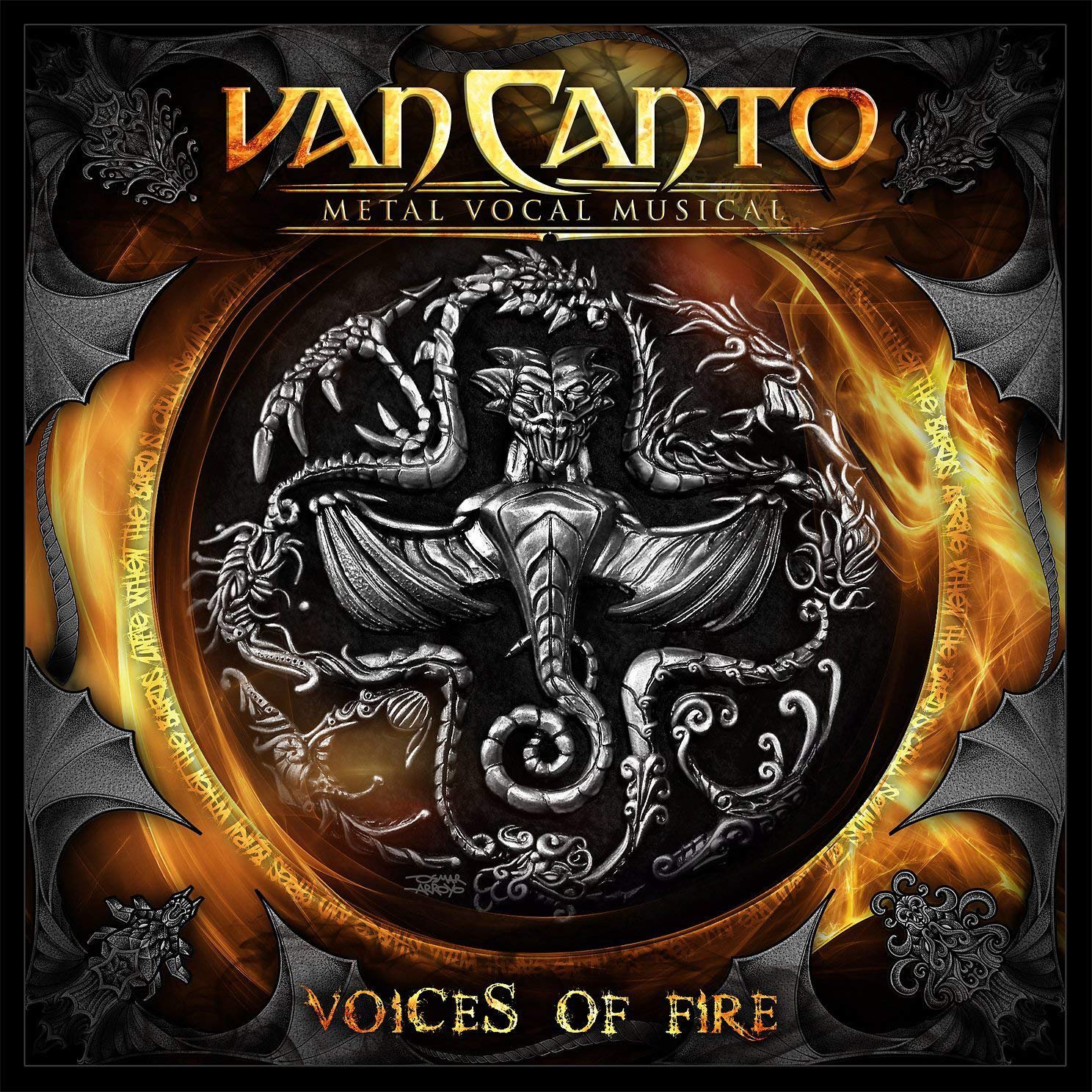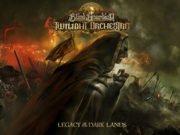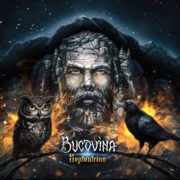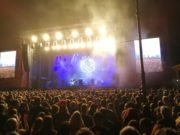
Van Canto, Voices of fire
Posted on: March 26, 2016 at 7:25 am
Ah, Van Canto, never change, no matter what countless of random people on the Internet tell you.
Signed- Random person on the Internet
I’m starting to get tired of all the comments about how Van Canto should give up the voices-only gimmick and introduce instruments and how this style is limiting them and that they can never be as good as a “regular” band because something something. If people who love the wackiest (and at the same time crappiest) stuff just because they’re novel and unusual are funny in their pompousness, I find those who immediately set arbitrary and made-up limitations pretty sad, especially when they’re metalheads who supposedly are open minded people who appreciate crossing the boundaries. To be clear, I don’t like Van Canto because they tried something else, I like them because they tried something else and are actually good at this. And I respect them very much for striving to be dynamic inside their exclusive segment, not giving up the core on which they were created, but not using the wash-rinse-repeat approach.
And so came to life Voices of Fire, which is a pretty unique album, seeing how it was created in parallel with a novel. Van Canto collaborated with German author Christoph Hardebusch to produce both a concept album and a fantasy novel and the two processes of creation crisscrossed and interlaced so much to the point where it’s not clear to the authors which influenced which and what came before what. It’s an interesting approach and an inventive way of obtaining an album story. To make it even grander, the band hired the London Metro Voices choir, responsible for the Lord of the Rings OST, and John Rhys-Davies who played Gimli. Hey, if Rhapsody of Fire got Christopher Lee, they had to get a LOTR actor as well, right? (and Rhapsody is clearly a major musical influence for them on this album, along with the equally LOTR-friendly Blind Guardian). Too bad that they made him talk forever! I’m not kidding, I’m all for spoken intros and interludes, but what they’ve done here surpasses all imagination. And patience… There’s an almost 3-minute prologue, an almost 1-minute epilogue and every single freaking songs ends with a few seconds of a spoken bla bla. Way too much!
Still, it’s a laudable effort on their part and this is where the change I was talking about becomes visible (audible). With this album, Van Canto have matured and have partially put aside the happy positive sound we know them for in favour of something more sober and refined. Songs like The oracle and To catharsis may just rank among the best of their tracks, with bombastic choirs, dramatic melodies and tons and tons of epicness. I still find myself slightly amused by the ridiiidiiiddiiidum’s and dundadamduda’s in the midst of such seriousness, but you can chalk that up to my childish sense of humour.
The band mentioned they wanted to set aside the overused orchestra and focus on the human voices, and coming back to the criticism I was talking about in the beginning, I find it very interesting that it’s precisely the human voices that make these tracks so good and pull them out of monotony. Inga and Sly are of course very talented singers and I love their voices, but the inclusion of the choir was an excellent decision (and not just the inclusion itself, but the way it was done). Clearly the Metro voices haven’t gained their reputation for nothing and they’re top notch, but the main credit goes to the band for being able to use them so well. I guess they *can* go to the next level and break the monotony without having to give up the thing that sets them apart. Who would’ve thought?
However, if we’re on the topic of monotony, I have to say that the most of the lighter and more upbeat tracks are not that impressive. With the exception of Time and time again, which is wonderfully cheerful and contagious, the rest of them are a bit bland. Some of them lack the hook all-together (All my life, We are one), some of them have the hook, but it’s from someone else (Firevows/ Bed of Nails) and some of them have their own hook, but they abuse it. The biggest culprit in the last category is Battleday’s Dawn, where I was this close to shutting it down if I heard the word “battleday” one more time, but the sad truth is that most of the songs have this problem. They have good engaging pieces, that draw the attention and stick to the ear, but the impact is lost by repeating them too many times, to the point where they’re irritating instead of attractive.
This is what their real problem is, and it has nothing to do with the “limitations” brought on by the lack of instruments, the human voice is incredible and with enough creativity and inspiration one can build amazing melodies using it. It’s the lack of imagination that’s killing Van Canto, as it’s killing most of the bands. I understand the difficulty, it’s hard to be able to remain original and fresh after a certain number of albums. Hell, it’s hard to even be original and fresh in the first place when there’s so much music and so much talent, but in the end that’s what separates good bands from brilliant bands. Van Canto is a good band and although I may have been a bit harsh with them (and others) for not searching for new shores with every single song, the truth is that sometimes being a good solid, albeit not highly innovative band should be enough. And I guess their distorsed voice-guitars give them some long-term leniency when it comes to innovation.





Be the first to comment on "Van Canto, Voices of fire" !